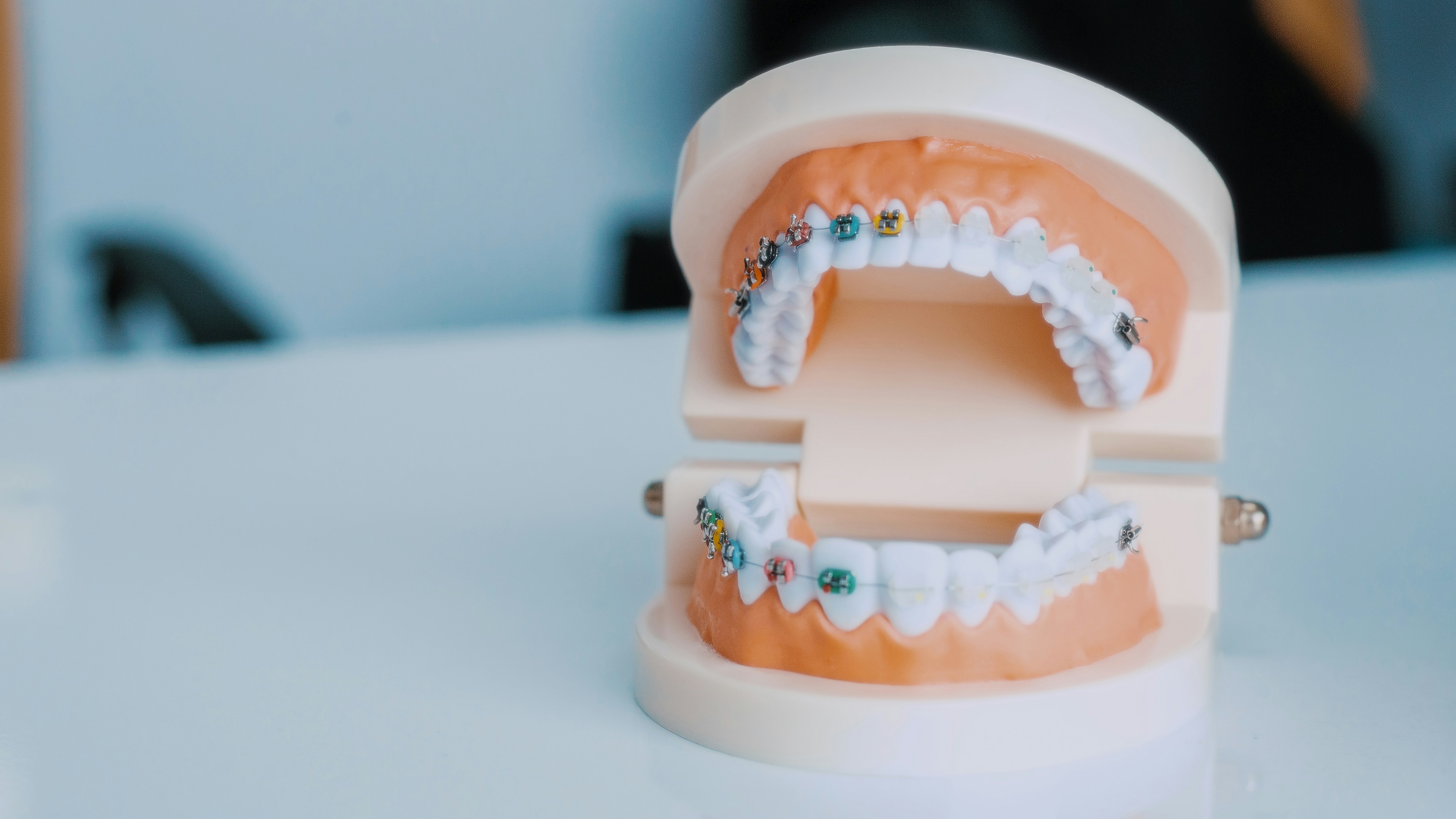
Oct 11, 2024
Bruxism in Children: Signs, Causes, and Solutions for Parents
Bruxism, or teeth grinding, isn’t just an adult issue; it can also affect children. Many parents may not even be aware that their child is grinding their teeth, as it often occurs during sleep. Understanding the signs, causes, and solutions for bruxism in children is essential for ensuring their dental health. In this article, we’ll discuss what parents need to know about children and bruxism, and how Bruxism+ can support families in managing this condition.
Signs of Bruxism in Children
Bruxism can manifest in various ways, and recognizing the signs early can help prevent long-term dental issues. Common indicators include:
Worn Tooth Enamel: If you notice your child’s teeth appear flattened or worn, bruxism may be the cause.
Jaw Pain or Discomfort: Complaints of jaw pain, especially in the morning, can signal that your child is grinding their teeth at night.
Frequent Headaches: Children who grind their teeth may experience tension headaches.
Sleep Disruptions: Grinding can interrupt sleep, leading to grogginess or irritability during the day.
If you observe these signs, it’s essential to consult a pediatric dentist for an evaluation.
Common Causes of Bruxism in Children
Several factors can contribute to bruxism in children, including:
Stress and Anxiety: Just like adults, children can experience stress from school, social interactions, or family changes, leading to teeth grinding.
Teething and Tooth Development: Many children grind their teeth when new teeth are coming in, which is a natural response.
Sleep Disorders: Conditions like sleep apnea can cause bruxism, as disrupted sleep may lead to grinding.
Understanding these causes can help parents address the underlying issues and reduce the likelihood of bruxism.
Solutions for Managing Bruxism in Children
If you suspect your child is grinding their teeth, here are some effective solutions:
Consult a Pediatric Dentist: A professional evaluation can determine if your child needs a custom night guard or other interventions.
Establish a Relaxing Bedtime Routine: Creating a calming environment before bed can help reduce stress and anxiety. Encourage relaxation exercises, which you can find in the Bruxism+ app, to help your child wind down.
Encourage Healthy Coping Mechanisms: Teach your child to express their feelings and cope with stress through activities like drawing, talking, or deep breathing.
Using Bruxism+ to Help Your Child
The Bruxism+ app can be a valuable resource for parents managing their child’s bruxism. The app offers exercises designed to relieve tension, tips for relaxation, and a tracking feature to monitor your child’s symptoms. By logging your child’s bruxism episodes and any related stress, you can identify patterns and make informed decisions about their care.
Regularly engaging with Bruxism+ can empower both parents and children to manage bruxism more effectively, ensuring a healthier future.
Conclusion
Bruxism is a common issue among children that can lead to serious dental problems if left untreated. By recognizing the signs, understanding the causes, and implementing effective solutions, parents can help their children overcome bruxism. Utilizing resources like the Bruxism+ app can provide additional support, making it easier for families to manage this condition and promote better dental health.
Bruxism, or teeth grinding, isn’t just an adult issue; it can also affect children. Many parents may not even be aware that their child is grinding their teeth, as it often occurs during sleep. Understanding the signs, causes, and solutions for bruxism in children is essential for ensuring their dental health. In this article, we’ll discuss what parents need to know about children and bruxism, and how Bruxism+ can support families in managing this condition.
Signs of Bruxism in Children
Bruxism can manifest in various ways, and recognizing the signs early can help prevent long-term dental issues. Common indicators include:
Worn Tooth Enamel: If you notice your child’s teeth appear flattened or worn, bruxism may be the cause.
Jaw Pain or Discomfort: Complaints of jaw pain, especially in the morning, can signal that your child is grinding their teeth at night.
Frequent Headaches: Children who grind their teeth may experience tension headaches.
Sleep Disruptions: Grinding can interrupt sleep, leading to grogginess or irritability during the day.
If you observe these signs, it’s essential to consult a pediatric dentist for an evaluation.
Common Causes of Bruxism in Children
Several factors can contribute to bruxism in children, including:
Stress and Anxiety: Just like adults, children can experience stress from school, social interactions, or family changes, leading to teeth grinding.
Teething and Tooth Development: Many children grind their teeth when new teeth are coming in, which is a natural response.
Sleep Disorders: Conditions like sleep apnea can cause bruxism, as disrupted sleep may lead to grinding.
Understanding these causes can help parents address the underlying issues and reduce the likelihood of bruxism.
Solutions for Managing Bruxism in Children
If you suspect your child is grinding their teeth, here are some effective solutions:
Consult a Pediatric Dentist: A professional evaluation can determine if your child needs a custom night guard or other interventions.
Establish a Relaxing Bedtime Routine: Creating a calming environment before bed can help reduce stress and anxiety. Encourage relaxation exercises, which you can find in the Bruxism+ app, to help your child wind down.
Encourage Healthy Coping Mechanisms: Teach your child to express their feelings and cope with stress through activities like drawing, talking, or deep breathing.
Using Bruxism+ to Help Your Child
The Bruxism+ app can be a valuable resource for parents managing their child’s bruxism. The app offers exercises designed to relieve tension, tips for relaxation, and a tracking feature to monitor your child’s symptoms. By logging your child’s bruxism episodes and any related stress, you can identify patterns and make informed decisions about their care.
Regularly engaging with Bruxism+ can empower both parents and children to manage bruxism more effectively, ensuring a healthier future.
Conclusion
Bruxism is a common issue among children that can lead to serious dental problems if left untreated. By recognizing the signs, understanding the causes, and implementing effective solutions, parents can help their children overcome bruxism. Utilizing resources like the Bruxism+ app can provide additional support, making it easier for families to manage this condition and promote better dental health.
Bruxism, or teeth grinding, isn’t just an adult issue; it can also affect children. Many parents may not even be aware that their child is grinding their teeth, as it often occurs during sleep. Understanding the signs, causes, and solutions for bruxism in children is essential for ensuring their dental health. In this article, we’ll discuss what parents need to know about children and bruxism, and how Bruxism+ can support families in managing this condition.
Signs of Bruxism in Children
Bruxism can manifest in various ways, and recognizing the signs early can help prevent long-term dental issues. Common indicators include:
Worn Tooth Enamel: If you notice your child’s teeth appear flattened or worn, bruxism may be the cause.
Jaw Pain or Discomfort: Complaints of jaw pain, especially in the morning, can signal that your child is grinding their teeth at night.
Frequent Headaches: Children who grind their teeth may experience tension headaches.
Sleep Disruptions: Grinding can interrupt sleep, leading to grogginess or irritability during the day.
If you observe these signs, it’s essential to consult a pediatric dentist for an evaluation.
Common Causes of Bruxism in Children
Several factors can contribute to bruxism in children, including:
Stress and Anxiety: Just like adults, children can experience stress from school, social interactions, or family changes, leading to teeth grinding.
Teething and Tooth Development: Many children grind their teeth when new teeth are coming in, which is a natural response.
Sleep Disorders: Conditions like sleep apnea can cause bruxism, as disrupted sleep may lead to grinding.
Understanding these causes can help parents address the underlying issues and reduce the likelihood of bruxism.
Solutions for Managing Bruxism in Children
If you suspect your child is grinding their teeth, here are some effective solutions:
Consult a Pediatric Dentist: A professional evaluation can determine if your child needs a custom night guard or other interventions.
Establish a Relaxing Bedtime Routine: Creating a calming environment before bed can help reduce stress and anxiety. Encourage relaxation exercises, which you can find in the Bruxism+ app, to help your child wind down.
Encourage Healthy Coping Mechanisms: Teach your child to express their feelings and cope with stress through activities like drawing, talking, or deep breathing.
Using Bruxism+ to Help Your Child
The Bruxism+ app can be a valuable resource for parents managing their child’s bruxism. The app offers exercises designed to relieve tension, tips for relaxation, and a tracking feature to monitor your child’s symptoms. By logging your child’s bruxism episodes and any related stress, you can identify patterns and make informed decisions about their care.
Regularly engaging with Bruxism+ can empower both parents and children to manage bruxism more effectively, ensuring a healthier future.
Conclusion
Bruxism is a common issue among children that can lead to serious dental problems if left untreated. By recognizing the signs, understanding the causes, and implementing effective solutions, parents can help their children overcome bruxism. Utilizing resources like the Bruxism+ app can provide additional support, making it easier for families to manage this condition and promote better dental health.
Our latest stories:


Nov 15, 2024
Dietary Changes That May Help Reduce Bruxism Symptoms


Nov 11, 2024
The Impact of Jaw Alignment on Bruxism: What You Need to Know


Nov 8, 2024
Understanding Sleep Apnea and Its Link to Bruxism
See all posts
Extra
Extra
Extra


